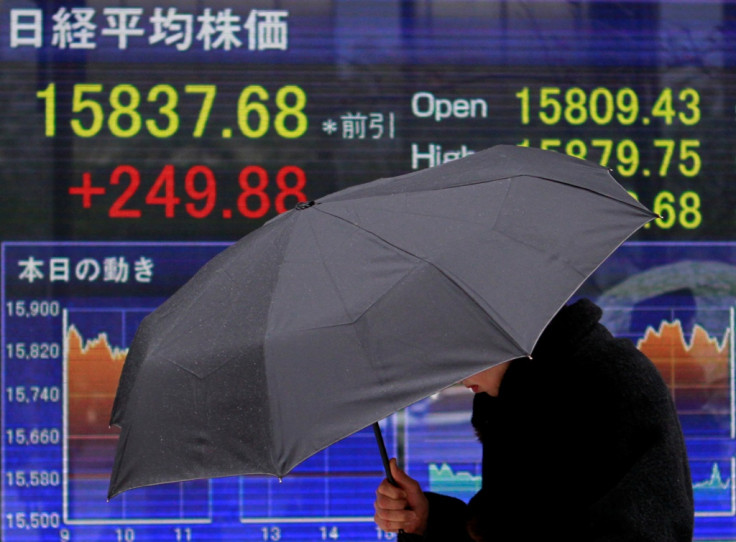Huge 'Fat Finger' Error Worth $617bn Hits Japan Market

Share orders worth several billions of dollars were cancelled in Japan due to a trading error.
At 9:25 am local time, orders for shares in 42 companies totalling 67.78tn yen ($617bn, £380bn, €488bn) were cancelled, according to data compiled by Bloomberg from the Japan Securities Dealers Association.
The stock orders amount to more than the size of Sweden's economy.
The companies involved in the trading error include Toyota Motor, Honda Motor, Canon, Sony and Nomura Holdings. The biggest order was for Toyota shares at 1.96 billion, representing 57% of the company's outstanding shares, for 12.68tn yen through an off-exchange transaction.
Off-exchange or over-the-counter trades are conducted directly between two parties without supervision of the stock exchange.
"It's not rocket science that there was a fat finger here, but it reopens the question about accountability," Gavin Parry, managing director at Hong Kong-based brokerage Parry International Trading, told Bloomberg.
The trading errors commonly known as 'fat finger' is not new to Japan. In 2009, UBS mistakenly ordered 3tn yen worth of convertible bonds in Capcom.
In 2005, Mizuho Securities tried to sell 610,000 shares at 1 yen apiece of a job recruiting firm called J-Com. It had actually intended to sell 1 share at 610,000 yen.
In 2001, UBS mistakenly placed a sell order for 610,000 newly listed shares in the Japanese advertising giant Dentsu for 16 yen apiece, while the prevailing market price was 420,000 yen.
© Copyright IBTimes 2025. All rights reserved.






















